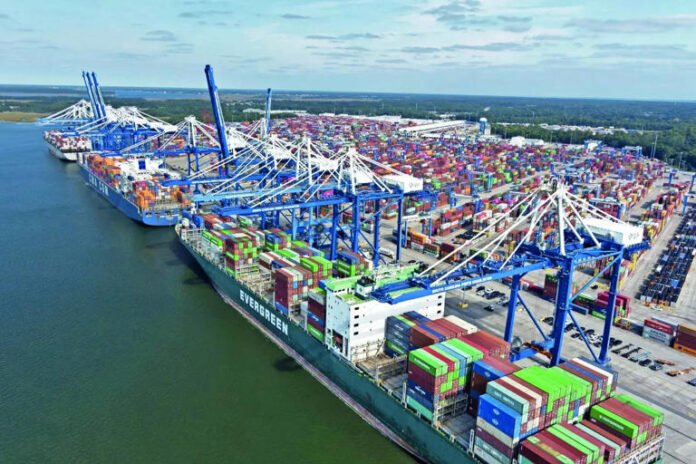India has initiated anti-dumping investigations into imports of two Chinese products—axles for cars and duplication printing machine parts. This step is seen as part of India’s broader strategy to protect local manufacturers from unfair trade practices and to reduce the market dominance of foreign products that enter at artificially low prices. The investigations were formally launched by the Directorate General of Trade Remedies (DGTR), a key arm of the Ministry of Commerce and Industry, marking a new chapter in India’s trade policy and its ongoing efforts to counteract dumping practices.
Understanding Anti-Dumping Measures
Anti-dumping measures are designed to prevent foreign companies from “dumping” goods into a country at prices lower than the cost of production, which can undermine domestic industries. Dumping often occurs when companies produce products at a much lower cost than what is considered the fair market value or the cost in their own country. These practices can lead to significant disruptions in the local economy, hurting domestic manufacturers and workers by flooding the market with cheaper, sometimes substandard, imports.
The World Trade Organization (WTO) permits countries to impose anti-dumping duties on products that are found to be dumped at unfair prices. These duties are intended to create a level playing field for domestic manufacturers while preventing market distortion caused by foreign exports sold below their true value.
The Chinese Products Under Investigation
The two Chinese products under scrutiny are axles for motor vehicles, which are used in the automotive industry, and duplication printing machine parts, which are vital for industries involved in large-scale printing operations. According to the DGTR, both these product categories have seen a significant increase in imports from China over recent years.
In the case of axles, the investigation stems from concerns raised by Indian manufacturers, who argue that the surge in low-priced imports is causing material injury to local producers. The same issue has been raised by companies dealing with duplication printing machines, who allege that their business has been adversely affected by Chinese parts being sold at unfairly low prices.
The DGTR will now conduct a detailed investigation into the pricing patterns, production costs, and the overall impact of these imports on Indian industries. The goal is to determine whether these products are being dumped in India and if they are causing harm to domestic manufacturers. If the investigation confirms these allegations, India could impose anti-dumping duties on the imports to offset the damage caused by unfair trade practices.
Strategic Implications for India’s Trade Policy
This investigation is part of India’s growing efforts to adopt a more assertive stance on trade protectionism, particularly when it comes to imports from China. India has long expressed concerns about the trade imbalance with China, which is its largest trading partner. The massive influx of Chinese goods has led to a trade deficit, with India importing a wide range of products, from electronics to machinery, at competitive prices. However, the increasing volume of these imports has also raised alarms over the impact on local industries.
India’s move to initiate anti-dumping investigations is not a standalone event but rather part of a broader strategy to curb unfair trading practices. The country has previously imposed anti-dumping duties on a range of Chinese products, including steel, aluminum, and chemicals, to protect its own industries. These measures are seen as a response to the challenges posed by China’s dominance in global manufacturing, especially in sectors such as machinery, electronics, and textiles.
The Impact on Indian Industries
For Indian businesses, the introduction of anti-dumping duties could offer much-needed relief. In sectors like automotive manufacturing and printing, where precision and quality are key, the influx of cheap Chinese imports has often led to a decline in demand for locally produced goods. If the investigation results in the imposition of anti-dumping duties, it could give a much-needed boost to Indian manufacturers by making imported goods more expensive and less competitive in the Indian market.
In the automotive sector, for instance, a significant number of domestic manufacturers rely on axles for the assembly of vehicles. The import of cheaper axles from China could reduce the market share of Indian producers, who often face higher production costs. Similarly, printing companies that depend on locally sourced parts for duplication printing machines could be adversely affected by cheaper alternatives from China, leading to loss of business and layoffs.
Global Trade Tensions and India’s Strategic Response
India’s move to counteract dumping through anti-dumping investigations comes at a time when global trade dynamics are increasingly influenced by geopolitical tensions, especially between China and several other nations, including India. With the ongoing border standoff between the two countries, economic relations have become an important aspect of India’s foreign policy. India’s efforts to reduce dependence on Chinese imports and promote domestic manufacturing through initiatives like Atmanirbhar Bharat (self-reliant India) are aligned with these broader geopolitical goals.
Additionally, the move reflects India’s growing role as a key player in global trade negotiations and its willingness to use trade remedies to protect its industries from external economic pressures.
Conclusion: A Step Towards Fair Trade
India’s initiation of anti-dumping investigations into Chinese products marks a significant step in the country’s efforts to protect its domestic industries from unfair trade practices. The outcome of the investigations will be closely watched, not only by Indian manufacturers but also by global trade bodies, as it highlights the growing trend of countries taking a more proactive stance in defending their economic interests. While the ultimate aim is to ensure a level playing field for local industries, India’s move also serves as a signal to the global trade community about its commitment to fair and equitable trade practices.

